Conscious Cooking: Choosing & Storing Sustainable Oils for a Greener Kitchen
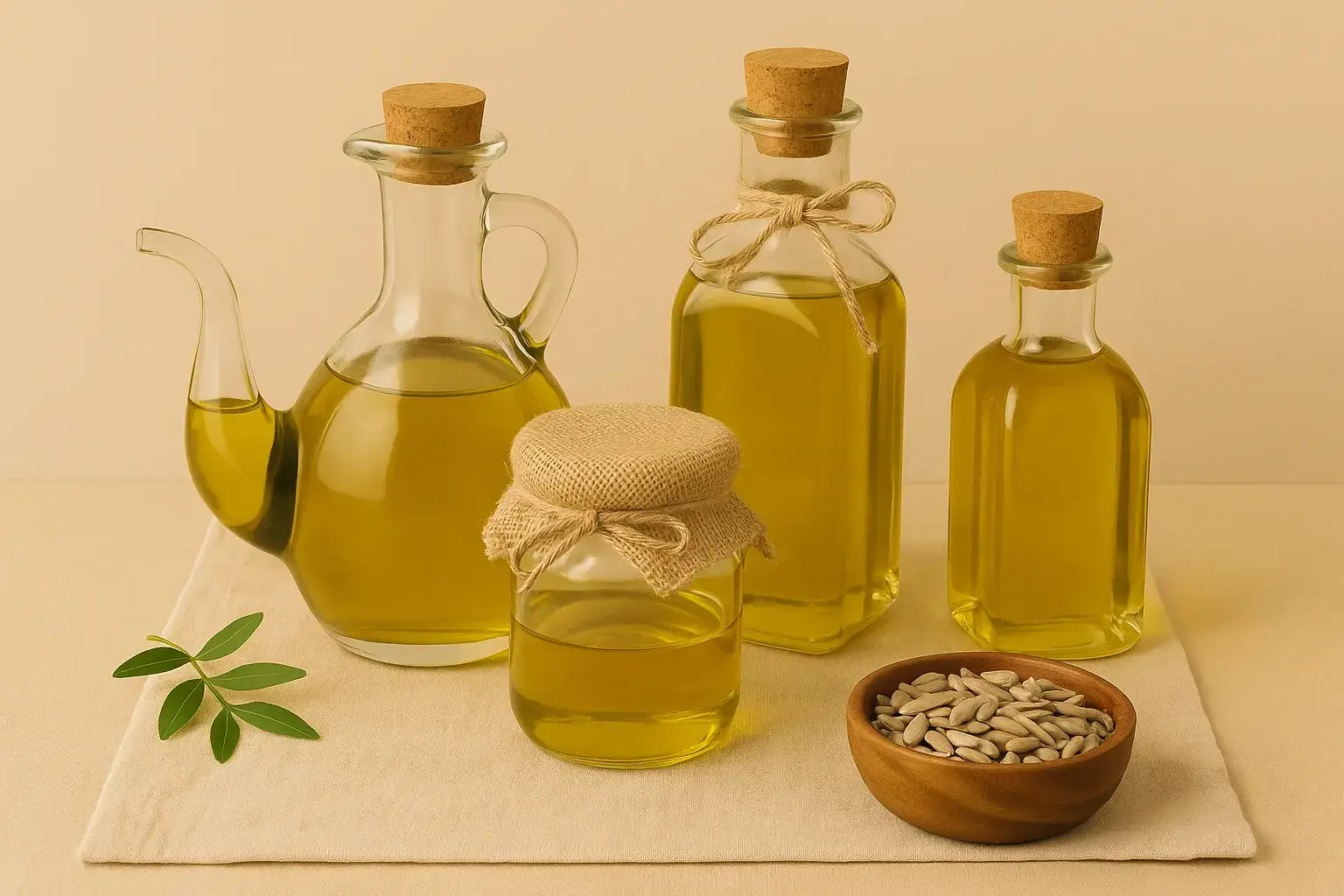
Cooking oil is a staple in almost every kitchen around the world. We use it for sautéing, frying, dressing, baking, and so much more. Yet, despite being such a fundamental ingredient, we often give little thought to where our cooking oils come from or how best to keep them fresh and minimize waste.
Choosing the right cooking oil and storing it properly are surprisingly impactful steps towards a more sustainable kitchen. Different oils have vastly different environmental footprints, and improper storage leads to spoilage, meaning wasted food and wasted resources.
Let's pour over the details and discover how to make more sustainable choices about the oils we cook with, and how to give them the best life possible in our pantries.
The Environmental Stir-Fry: What Makes an Oil Sustainable?
The sustainability of a cooking oil depends on several factors across its lifecycle:
- The Crop: What plant is grown? Is it a monoculture requiring vast land clearing (like palm oil) or a more diverse crop? Does it require excessive water or pesticides?
- Farming Practices: Is it grown using organic or regenerative practices that protect soil health and biodiversity? Or conventional methods that can lead to chemical runoff and soil degradation? Is fair labor used?
- Processing: How is the oil extracted? Cold-pressing or mechanical methods generally use less energy and fewer chemicals than methods relying on high heat and chemical solvents.
- Transportation: How far does the oil travel from where the crop was grown and processed to your local store?
- Packaging: Is it bottled in easily recyclable materials (glass, metal) or plastic? Is buying in bulk an option to reduce packaging?
- End-of-Life: How should used cooking oil be disposed of responsibly? (Hint: NOT down the drain!).
Sustainable Oils to Look For (and What to Watch Out For)
While no food production is zero-impact, some oils have a generally lower footprint or offer more sustainable options within their category:
- Extra Virgin Olive Oil (EVOO): Often considered a good choice. Olive trees are relatively hardy and can grow in diverse landscapes (though monocultures exist). Look for organic and regionally sourced options if possible. Processing (cold-pressing for EVOO) is typically less intensive than refined oils.
- Organic Canola or Sunflower Oil: While conventional versions can be linked to intensive farming and processing, choosing organic addresses pesticide use and GMO concerns. Look for cold-pressed versions for less chemical use. Opting for oils grown closer to your region also reduces transport emissions.
- Responsibly Sourced Coconut Oil: Coconut farming can be sustainable if part of diversified farms that support local ecosystems and communities. However, demand has also led to deforestation in some areas. Look for organic, fair trade, or certified sustainable options, and be mindful of the distance it travels if you don't live in a coconut-growing region.
- Flaxseed Oil & Hemp Seed Oil: These are often cold-pressed and derived from crops that can be less intensive to grow. They are highly nutritious but have low smoke points, making them best for uncooked uses like dressings or drizzles.
- Local & Regional Oils: Perhaps the most sustainable choice is an oil grown and processed near you. This dramatically cuts down on transportation emissions and supports local economies. What's considered "local" will vary greatly depending on your location!
- AVOID: Conventional Palm Oil: Palm oil is used in countless food products and has been a major driver of deforestation, habitat loss (threatening species like orangutans), and social conflict in tropical regions. Unless certified by stringent, credible standards (and even those face criticism) that verify no deforestation and ethical practices, it's best to avoid products containing conventional palm oil due to its significant environmental and social toll.
Smoke Points Matter (For Sustainability!)
Using the right oil for the right cooking temperature isn't just about flavor; it's about preventing waste. Every oil has a smoke point – the temperature at which it starts to burn and degrade, potentially creating harmful compounds and giving your food an unpleasant taste.
- Low Smoke Point (best for dressings, dips, low heat): Flaxseed, Hemp Seed, Extra Virgin Olive Oil (though high quality EVOO can handle medium heat), Walnut Oil.
- Medium Smoke Point (best for sautéing, pan-frying): Olive Oil, Organic Canola, Organic Sunflower, Virgin Coconut Oil.
- High Smoke Point (best for searing, deep frying): Refined Avocado Oil, Refined Coconut Oil, Grapeseed Oil, Peanut Oil, Rice Bran Oil.
Using an oil with a low smoke point for high-heat frying will cause it to burn quickly, rendering it unusable and creating waste. Choose a high smoke point oil for those methods.
Keeping Your Green Oils Fresh: Sustainable Storage Hacks
Even the most sustainably sourced oil becomes unsustainable if it spoils before you can use it. Oil degrades when exposed to its enemies: Light, Heat, Air, and Time. Proper storage is key to preserving quality and preventing waste.
- Choose the Right Container:
- Opaque is Best: Store oils in dark glass bottles or metal tins. Clear bottles expose oil to light, which accelerates spoilage.
- Airtight Seal: Ensure the cap or lid closes tightly to minimize exposure to oxygen.
- Find a Cool, Dark Place:
- Pantry Power: Store oils in a cool cupboard or pantry, away from direct sunlight.
- Avoid the Stove: Don't keep oils right next to your stove or oven where temperatures fluctuate and get hot.
- Consider the Fridge: Oils high in polyunsaturated fats (like flaxseed or hemp) benefit from refrigeration after opening to prevent rancidity and extend shelf life. Olive oil can be refrigerated but might solidify – this doesn't harm it, just let it come to room temperature before use.
- Buy the Right Size: While larger containers might seem more economical and use less packaging per volume, only buy a size you are confident you will use within the oil's typical shelf life (check the bottle, but often within a year or less of opening). Rancid oil is wasted oil.
- Keep it Clean: Wipe the neck of the bottle after pouring to prevent sticky residue, which can also turn rancid and affect the oil's quality.
- Refill if Possible: If you have access to stores that offer oil refills for oils like olive oil or even some cooking oils, bring your clean bottle back to refill and eliminate packaging waste entirely!
Don't Pour It Down! Responsible Disposal of Used Oil
Never, ever pour used cooking oil down the sink or toilet. It solidifies in pipes, causing blockages, and is terrible for sewage systems and waterways.
- Small Amounts: For tiny amounts used for sautéing (just residue in the pan), wipe the pan out with a paper towel or old cloth and dispose of it in the trash or compost (check local composting rules, as some systems can handle small amounts of oil-soaked paper/cardboard).
- Larger Amounts: For oil from deep frying or significant pan frying, let it cool completely. Pour it into a sealed container (like the original bottle or a sturdy jar). Research your local waste disposal options – many municipalities have designated drop-off points for cooking oil recycling (it can be turned into biodiesel!). Some rendering companies also accept larger quantities.
Making conscious choices about your cooking oils – from selecting more sustainable options to storing them properly and disposing of them responsibly – is an achievable and impactful way to stir up a greener kitchen and contribute to a more sustainable food system. Start by checking the labels on your current oils and thinking about where you store them!
Related Blogs
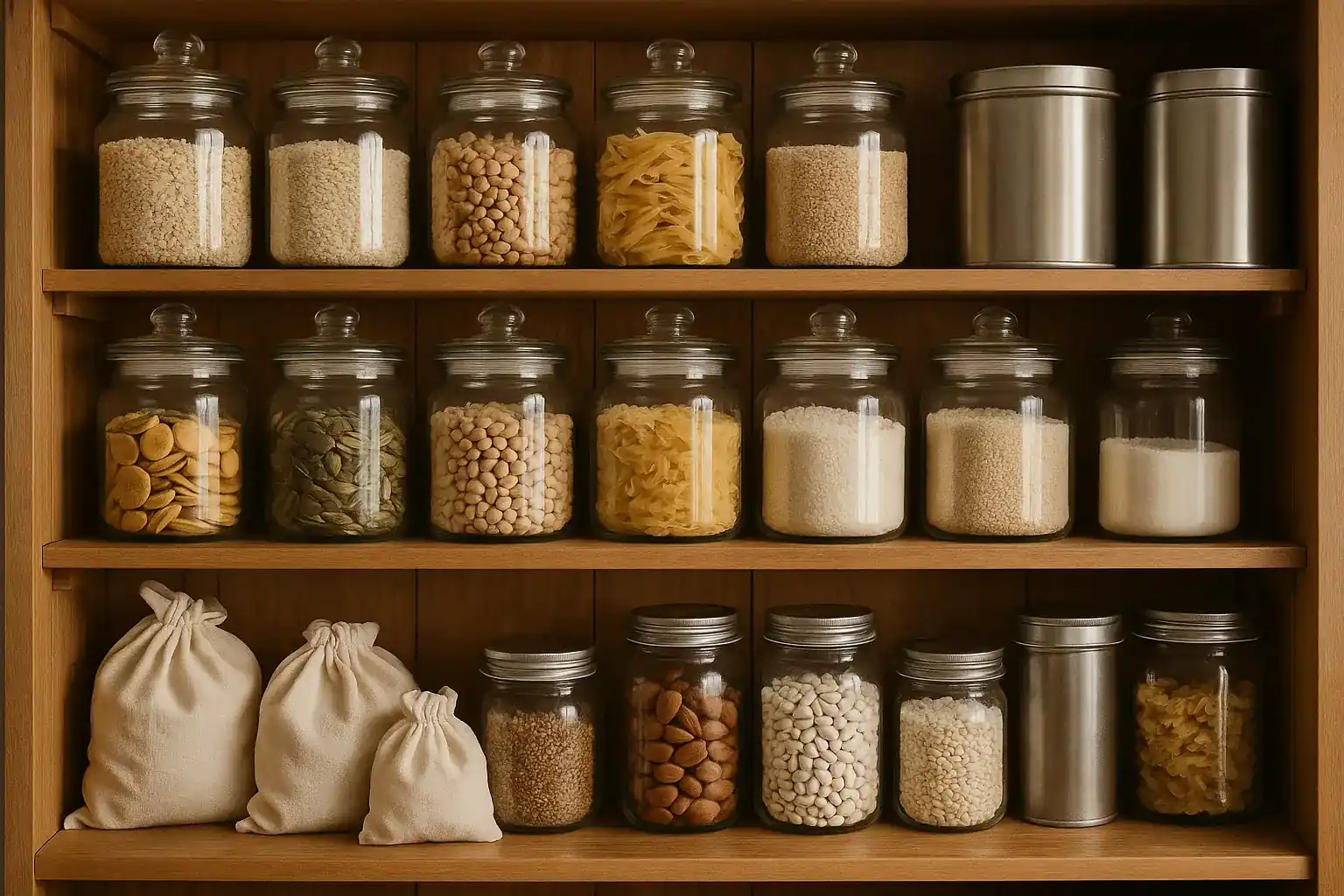
Say Goodbye to Single-Use: 10 Easy Swaps for a Plastic-Free Pantry
Insights on 10 easy swaps for a plastic-free pantry in a sustainable way.
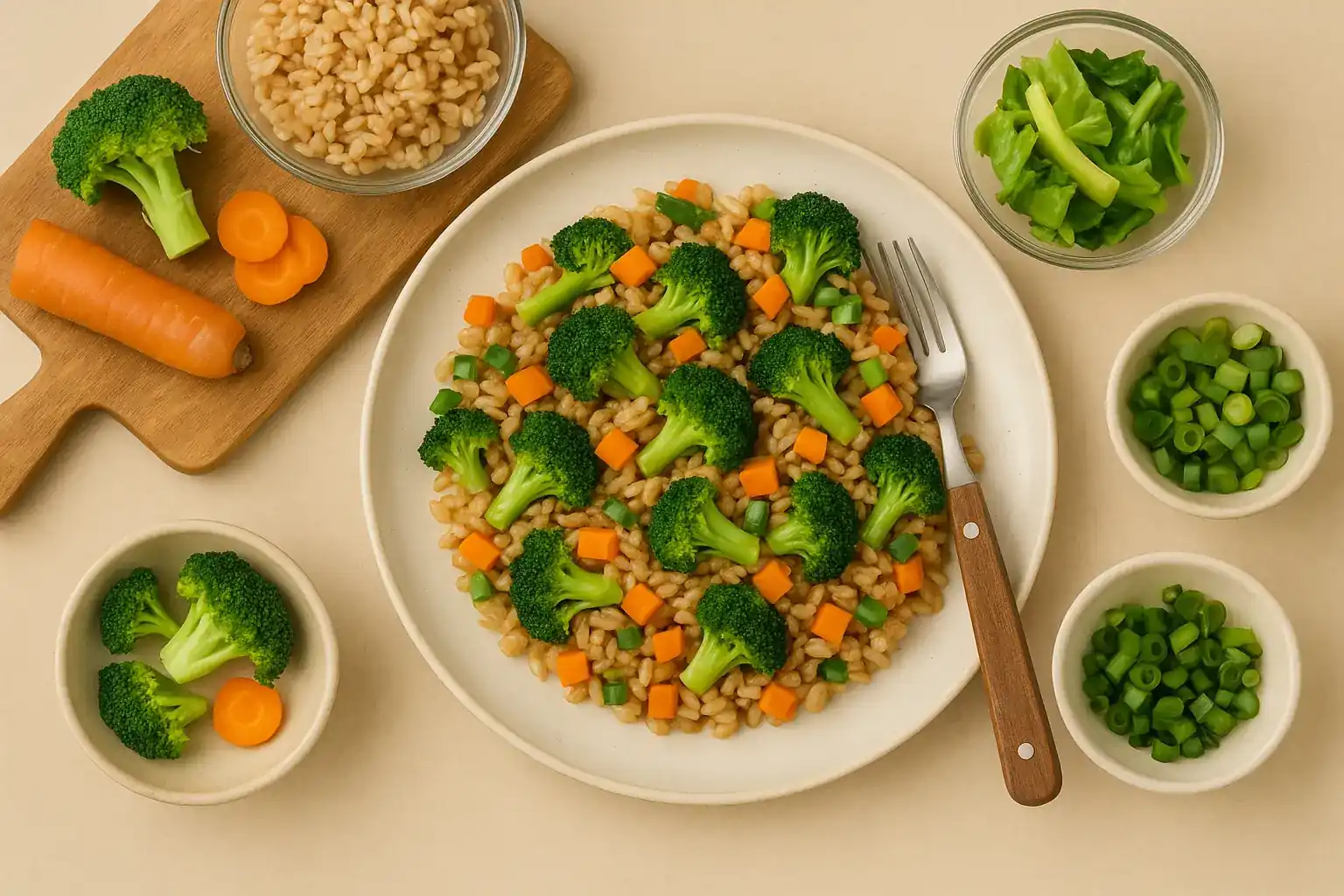
A Week of Delicious Transformations: Zero-Waste Recipes Using Your Leftovers
Insights on a week of zero-waste recipes using leftovers in a sustainable way.
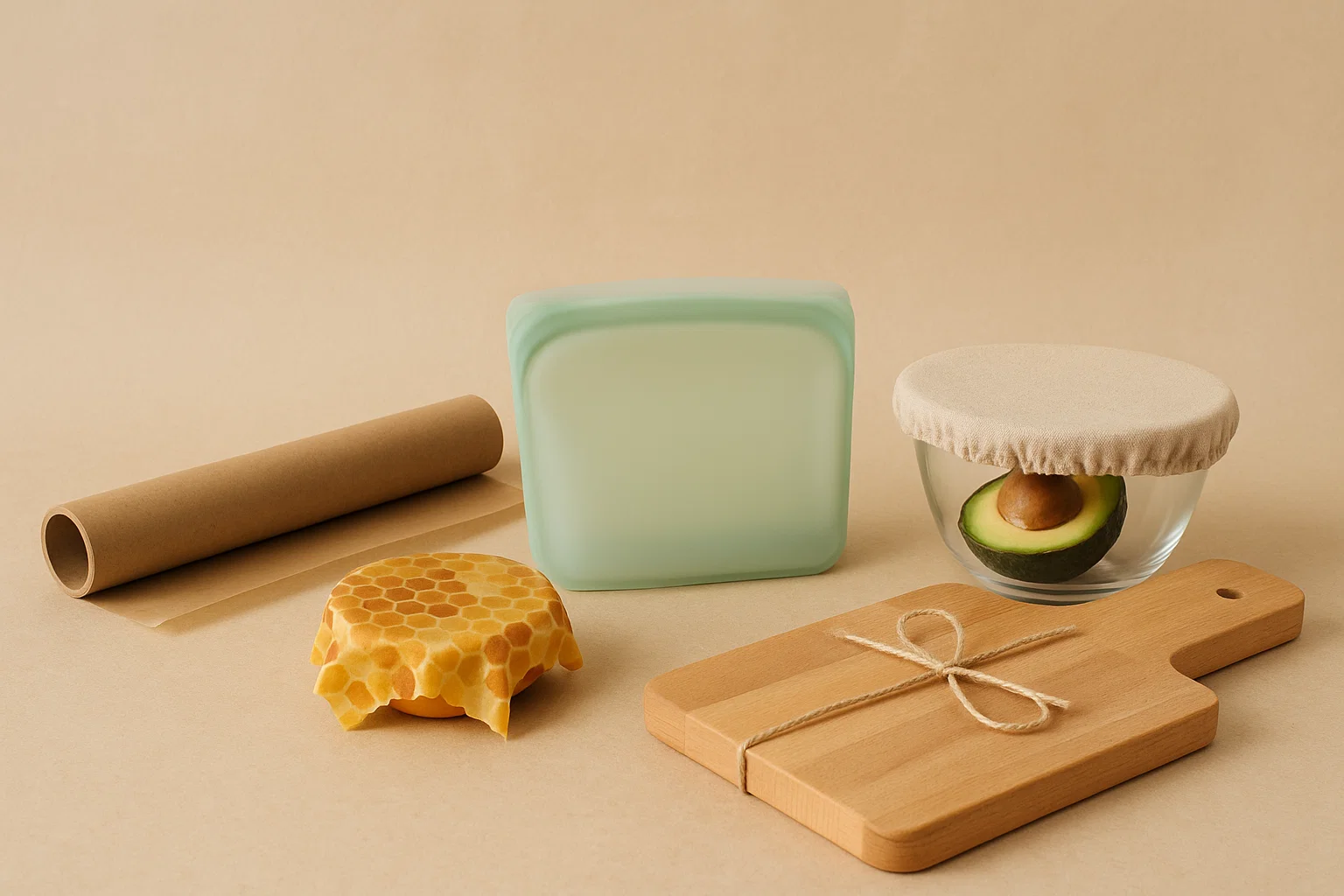
Beyond the Foil: Reusable Alternatives for Sustainable Baking and Food Storage
Opt for reusable silicone baking mats, covered bakeware, and beeswax wraps instead of aluminum foil.
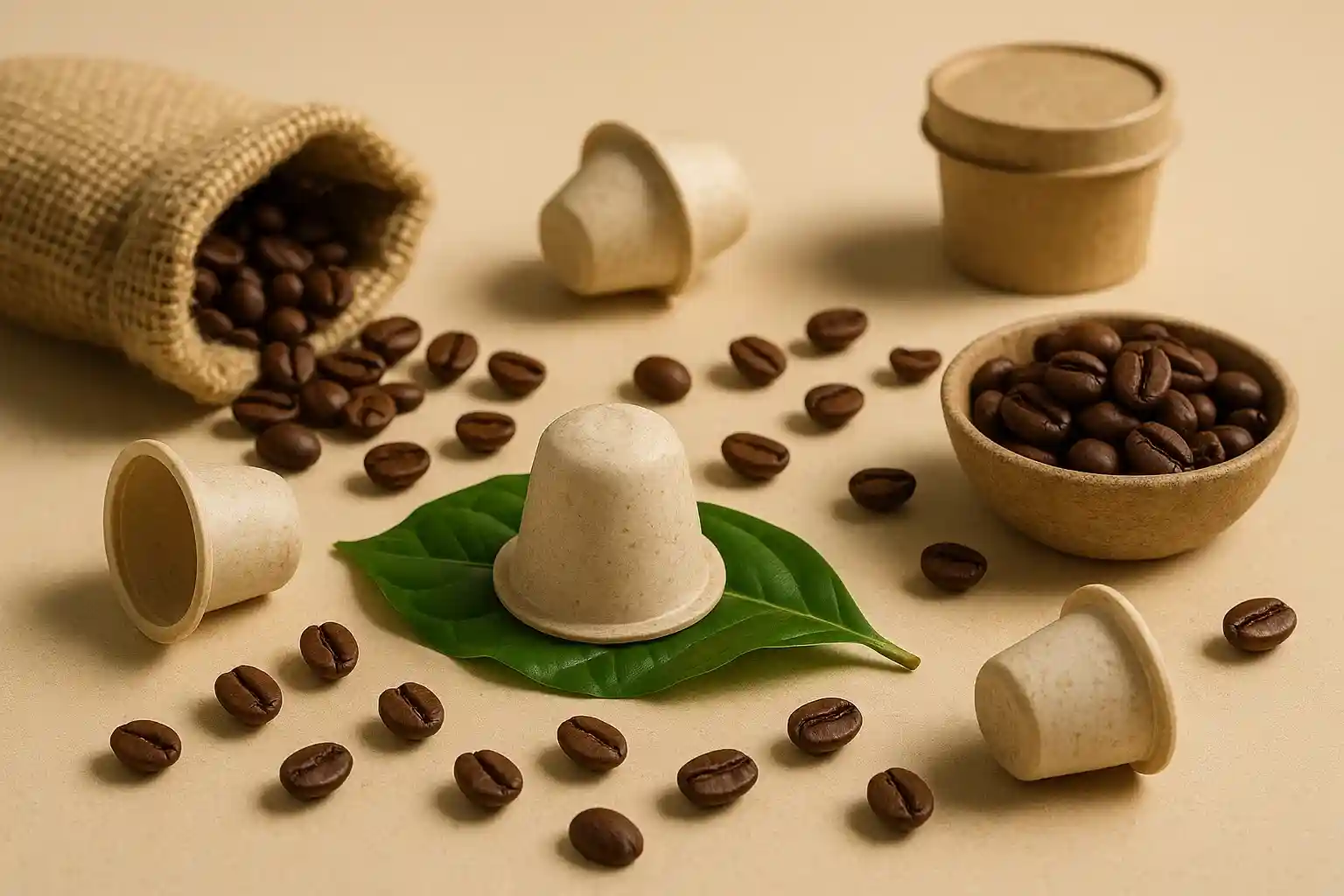
Brew Better, Waste Less: Sustainable Alternatives to Single-Use Coffee Pods
Lower waste and enjoy better flavor with reusable pods, French presses, or Moka pots.
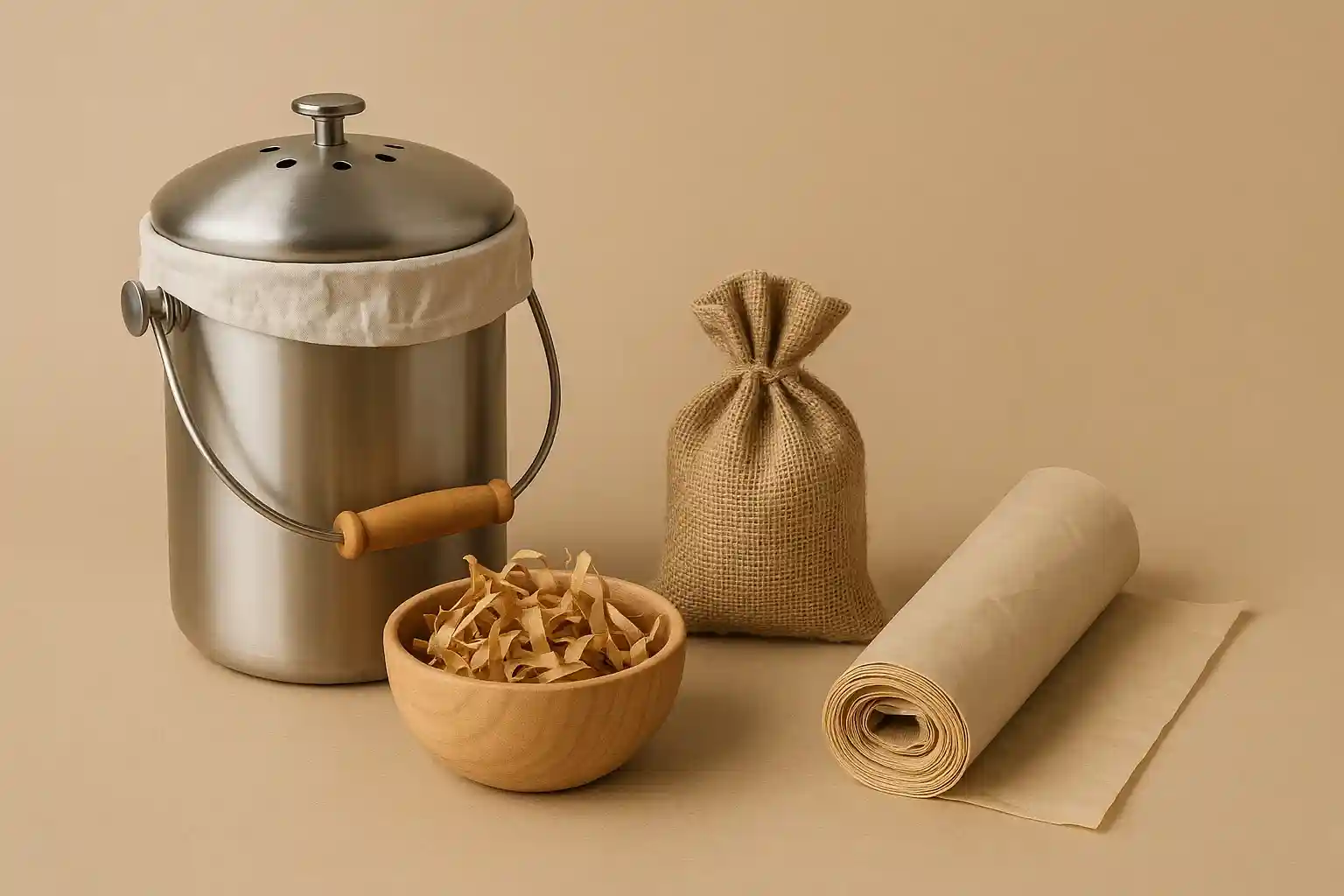
Compost Without the Carry-On: Sustainable Alternatives to Store-Bought Compost Bags
Reduce unnecessary plastic in composting with newspaper liners, bag-free bins, or DIY liners.
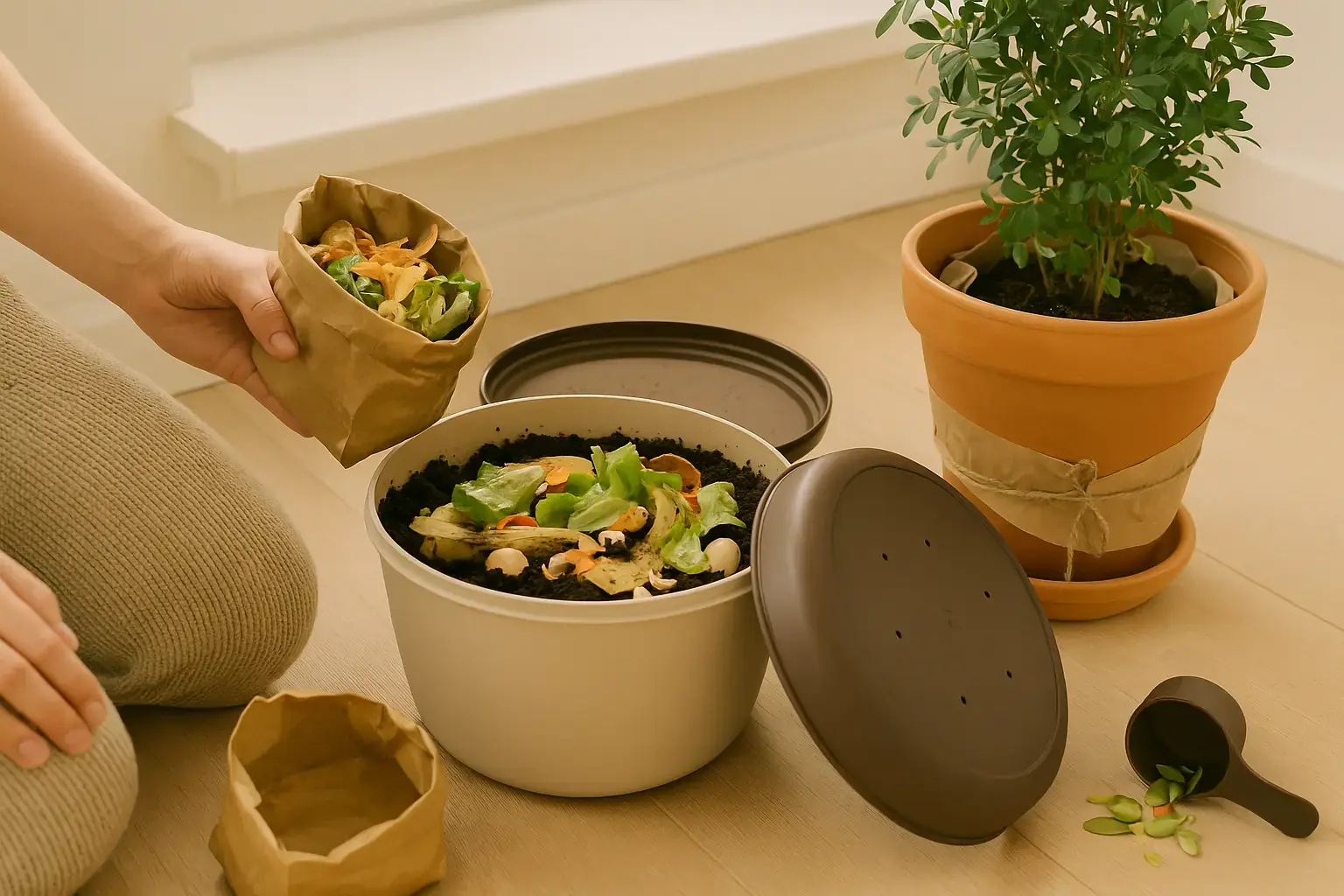
Compost Happens (Even in Apartments!): Your Beginner's Guide
Practical advice and actionable tips for composting 101.
Stay in the Loop
Get tips and insights tailored to your interests — no spam, just sustainability.